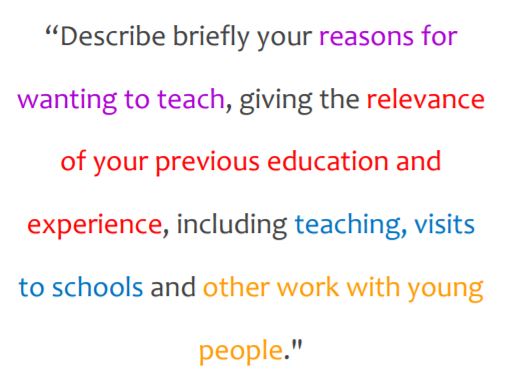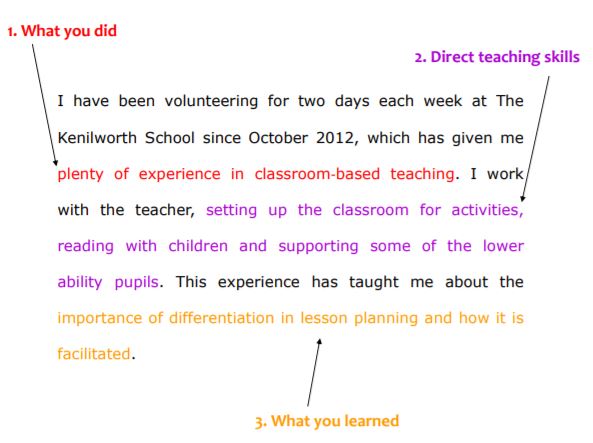Tips for Success

Tips for success
Preparing for your interview can feel daunting if you're not sure what to expect. To help get you started, we've put together our top tips and advice to help you on your journey to towards training to teach.
Take your time
Ask us anything
Meet the deadlines
How are you going to present yourself as an ideal candidate?
A short, simple introduction and conclusion can help make your application stand out.
Formatting guidelines
- Around 1 page of A4
- 47 lines long
- About 4000 characters including spaces
- Verdana size 11 font
- Unique to you: remember, all applications go through Copycatch, the UCAS plagiarism checking system, so please don't copy any content from anywhere else, just be yourself.
Writing guidelines
- Thoroughly research the course and give yourself enough time
- Write your text in Word (or similar) before uploading and proofread for spelling, grammar and punctuation; ask someone else to proofread. Avoid italics, bold and underlining.
- Make sure you give examples with evidence. Your evidence should demonstrate your capabilities: be upbeat, concise, positive, enthusiastic and clear.
- Don't use jargon, and watch out for any irrelevant, negative or redundant phrases (e.g. “I like reading and socialising with friends”, “Although I do not have experience in," “I have always wanted to be a teacher”, “I like working with children”)
Example of breaking down a question and answering it:

Transcript: "Describe briefly your [reasons for wanting to teach], giving the [relevance of your previous education and experience], including [teaching, visits to schools] and [other work with young people]"

Transcript: "Thinking about my own experience in education, [I appreciate the incredible impact that teachers have on the lives of young people]. I know that teachers provide [skills and knowledge used by young people throughout life]. Therefore, [as a teacher, my greatest aim is to be a role model]. I want to cultivate [open minds, the knowledge and ability to look at the world critically, and students' belief in their own capacity to make positive contributions to society]."
Teaching skills
What you have done and how you have learned from it? How will these skills help you become an effective teacher?
- Talk about how you relate to young people and why you enjoy working with them
- Explain how you would work with parents and as part of wider pastoral teams
- Show evidence that demonstrates your adaptability, interpersonal skills, listening, creativity, enthusiasm, imagination, energy, responsibility, versatility...
- Explain how you cope under pressure and manage your time
- Reflect on your school experiences and talk about what you learned
- Choose new examples that show your range of experiences and learning opportunities
Example of answer:

Transcript: "I have been volunteering for two days each week at The Kenilworth School since October 2012, which has given me plenty of experience in classroom-based teaching. I work with the teacher, setting up the classroom for activities, reading with children and supporting some of the lower ability pupils. This experience has taught me about the importance of differentiation in lesson planning and how it is facilitated."
Other skills
Consider the teaching environment outside of the classroom – other staff members, planning your schedule; think about how to extrapolate previous experiences and apply them to the school context.
- Discuss the skills you gained from your undergraduate degree, current job or other previous study/employment
- Explain how your talents, hobbies, other languages, ICT skills might be of benefit in a teaching career
- Drama, music, sport, photography, painting sets for plays – talk about the extracurricular support you can offer
- Mention other work/volunteering – community work, elderly people, youth group
- Talk about practical experiences managing people, leading, working in teams and using communication skills
Example of answer:

Find out more about what to expect during your interview and how best to prepare.
Take this quiz to find out more about your interpersonal skills.
Wondering how to walk and talk like a teacher? Here's some useful tips and information about body language and being a teacher.
Our top tips to help you to prepare for your mini lesson.
Read our guide full of useful information when thinking about your group discussion
